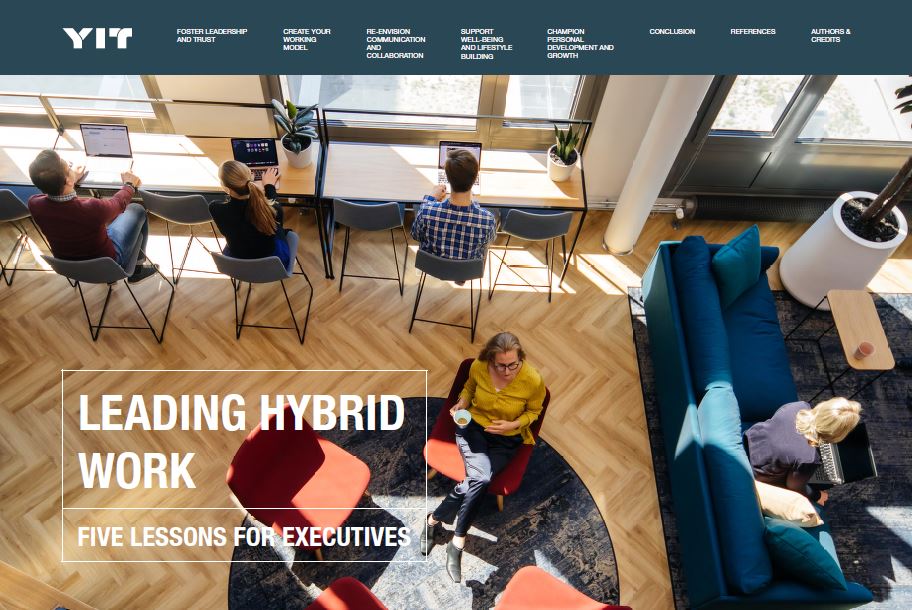Sustainable data centers as a service
How to lead people when knowledge work is done partly at the office and partly from home? How to harness the ways of action, premises and technologies to support employee well-being and, at the same time, enable efficient business?
In cooperation with The NextGen Project and Microsoft, we have compiled a report called “Leading hybrid work: Five lessons for executives”, which was supplemented with the perspectives of business experts and next generation leaders. The survey revealed five minimum requirements necessary for each team lead to adopt in order to make hybrid work a success.
The objective of the publication is to provide a concise information package for leaders on how to develop sustainable hybrid work practices and processes. We also listed means of influencing the company image, reputation and attractiveness amongst current and future employees.
Some of the most important concrete factors include utilising humanity and open-mindedness in management, bringing well-being to the centre of things, team-specific hybrid work strategy and active communications with subordinates.
Well-being must be consistently prioritised in organisational decision-making to make people feel valued and cared for. Humanity and learning from mistakes strengthen the relationship with subordinates. To ensure smooth working, attention should be paid to authenticity, trust and, among other things, the personality types and temperaments of subordinates.
Harnessing the premises, services and tools to support work played an important role regardless of location. When arranged well, they represent the company values and promote a sense of community among employees. Different elements are needed in the office, however, than in remote work.
Attention must be paid to breaks to keep the employees focused, creative and committed. Breaks may also reduce stress levels.
Even more active communications with subordinates is an important tool for managers. Communications must be planned carefully in hybrid work. New ideas, technologies and processes should be utilised without prejudice as they allow a fruitful cooperation in hybrid meetings.
Hybrid work must be based on a strategy that has been communicated clearly to the team and colleagues. There is no single universal model. The teams must agree on ground rules and when to work at the office and when remotely.
Cherish leadership and trust, build strong relationships with your employees and enable sustainable occupational dynamics at the office. Arrange locations for calm and creative work requiring concentration as well as functionalities for well-being. This also helps attract people to the office.
